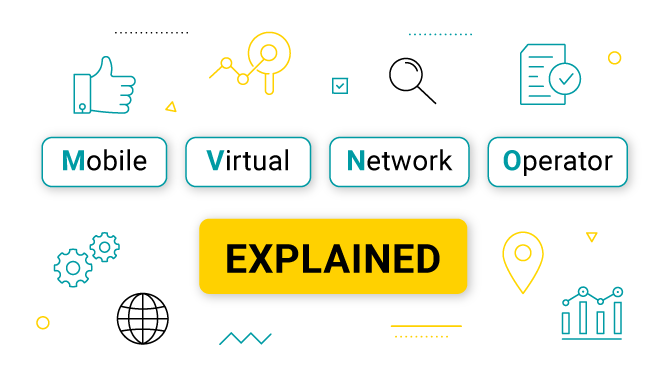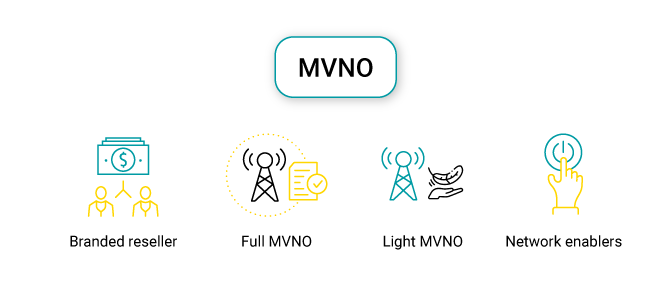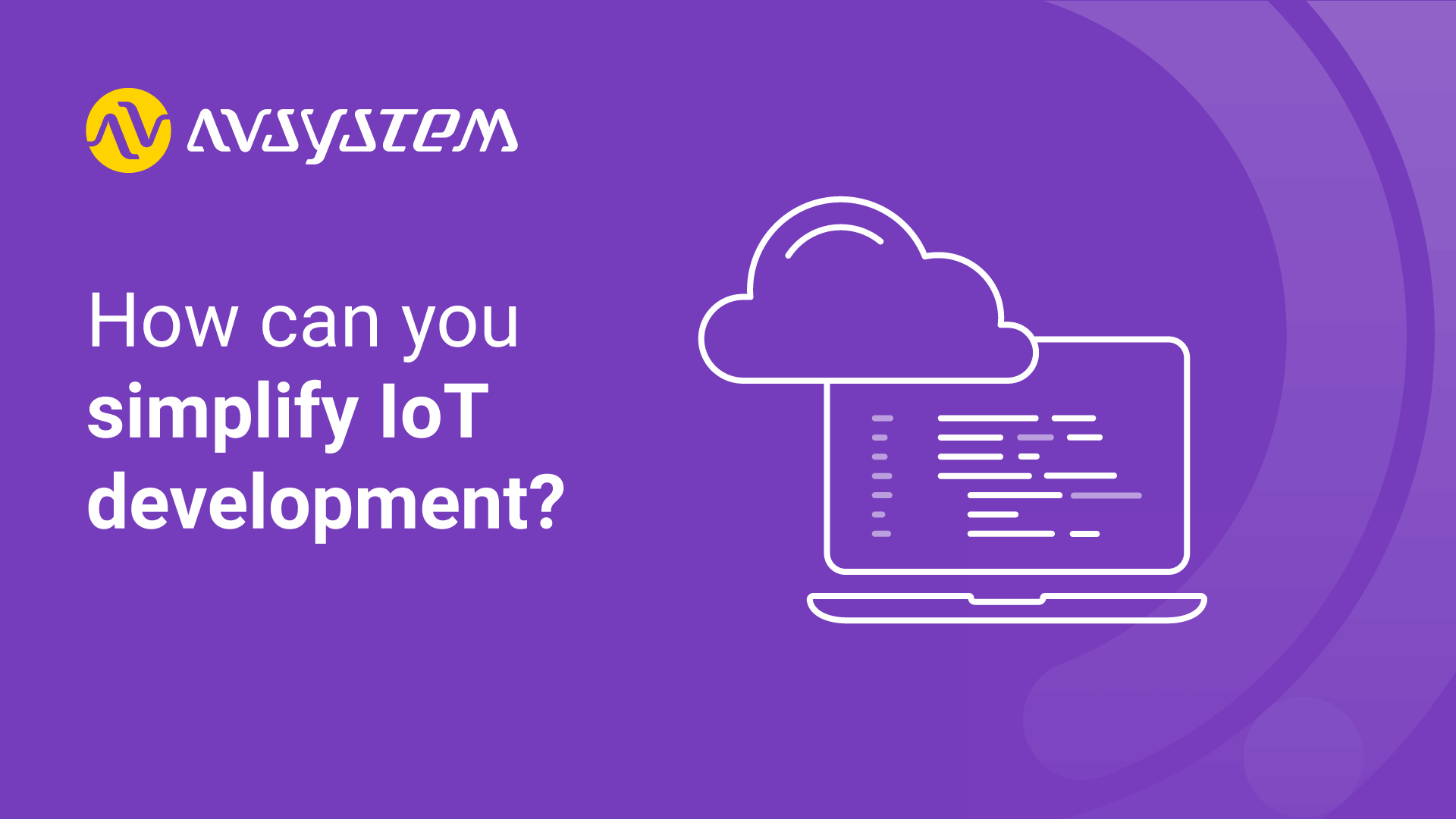What is a mobile virtual network operator (MVNO)?

Mobile virtual network operators or MVNOs play a unique part in today's economy. In this article, we'll examine how exactly their business model looks and what they can bring to the "IoT table".
What is a mobile virtual network operator or MVNO?
A mobile virtual network operator or MVNO is a wireless communications service provider. Unlike traditional mobile network operators (MNOs), MVNOs do not own the infrastructure they use. Instead, they lease it from MNOs and use the infrastructure to deliver a unique set of services to their markets. MVNOs acquire bulk access to an MNO’s services at discounted or wholesale rates and set retail prices for sale to consumers.
Tesco Mobile is an MVNO. It offers cell phones, call plans, and data as an MVNO. Tesco Mobile is able to be an MVNO by leveraging O2’s mobile network infrastructure.
What makes a mobile virtual networks operator unique?
There are four types of MVNOs that are distinguishable by the models they use. However, MVNOs share a similar set of characteristics that make them unique. MVNOs are typically brands with:
- Access to a large existing base of consumers
- Loyal customers, making it easier to sell white-labeled mobile networks products and services
- Capital or access to capital to invest in front-end systems to cater to consumers (think marketing, sales, and customer services)
As a large multinational supermarket chain, Tesco has access to a large market of consumers. Using its name and reach, Tesco is able to leverage brand affinity to offer consumers an alternative to traditional mobile network deals.
And this is not the first time Tesco ventured into a new industry. They have done something similar in the financial sector, creating a bank in partnership with the Royal Bank of Scotland -- proof that brands wield a tremendous amount of power.

What does an MVNO do?
MVNOs don’t invest in mobile network infrastructure but must provide other important services that support their clients. These are services that help MVNOs transfer value and positive brand experiences:
- Marketing and promoting products
- Managing billing and invoicing of clients for services
- Subscriber registration to the network
- Offering subscriber services like balance checks, network top-ups, customer care, and SMS capabilities
- Distribution of assets like SIM cards and mobile phones
Why do mobile network operators need MVNO?
Mobile operators choose to leverage MVNOs for two main reasons. These are:
An opportunity to reach non-targeted segments
Mobile operators are like most brands; they are always looking to grow, but growth can sometimes be hard to achieve. A solution is to find partners with large customer bases. These partners are able to position themselves and leverage brand affinity to sell more mobile network services to their customers.
Leverage infrastructure to create additional revenue streams
Mobile network infrastructure is also often capable of managing more user requests than it has at any given time. And for mobile operators, this presents the opportunity to offer unused bandwidth to MVNOs, making it possible to sell access to infrastructure and generate revenue.
What kind of MVNOs are there?
MVNOs exist in four forms. Here’s a look at each along with examples in various countries:
Branded reseller
Branded resellers are considered the “lightest” and quickest of MVNO business models to create. This is due to the way this type of MVNO functions. Brand Resellers leverage their brand name and, from time to time, their distribution channels to acquire new or onboard their existing customers.

Branded resellers often also invest less to become MVNOs, which influences their control over various aspects of their new business. Low investments mean less impact on the types of products they can create and offer to the market, and potentially also the revenue they can generate.
Rain is a South African-based MVNO that offers data-only deals. Rain provides customer support to its customers and handles the promotion and sales of their SIM cards through retail outlet partners and via their website.
Full MVNO
Full MVNO is considered the most entrenched type of MVNO. Full-MVNOs typically have greater access to the mobile network operator’s infrastructure. Full-MVNOs are responsible for all other elements in the value chain, resulting in greater investment on their part.
Vialis is a fixed and mobile operator in Alsace (Eastern France). Originally founded in 2003 as a gas and electricity provider, the firm branched out to offer telco services in 2006.
Light MVNO
Light-MVNOs fall into the gap between Branded Resellers and Full-MVNOs. They handle sales and marketing, back-office processes, and value-added service and operations.
Ello Mobile, a Netherlands-based light MVNO, was founded in 2006. It offers local and international calling plans and mobile data deals.
Network enablers
Network Enablers, otherwise known as “Mobile Virtual Network Enablers” or “MVNEs”, can be considered middlemen. They provision infrastructure for MVNO operations. MVNEs can also provide value-added services and/or back-office processes to other MVNOs.
In many ways, MVNEs are true to their names. As enablers, they provide a space for MVNO to enter markets. They also serve as aggregators, taking the requests of a group of small MVNOs and negotiating better terms with MNOs. These solutions make it possible for “in-a-box” MVNO models to be offered to smaller MVNOs, accelerating market access for more brands.
Pareteum is a global provider of Communications Platform-as-a-Service solutions. It enables interested brands the opportunity to become light MVNOs.

What do MVNOs need to be competitive?
To deliver superior services to their customers, MVNOs need a secure, flexible, and robust IoT platform. Here are the most important aspects that MVNOs should consider when choosing the right platform:
Robust device security
IoT, as a technology, is especially vulnerable. Mobile devices are often not updated with the latest firmware, making them easily susceptible to malware and other malicious threats. And when introduced to a network, these susceptible devices increase the threat matrix for already busy administrators.
To do away with security threats, MVNOs must invest in platforms that offer flexible mechanisms for FOTA and SOTA upgrades to always keep their customer’s devices up to date.
Strong reporting capabilities
Prevention will always be better than the cure. For MVNOs, preventing device critical failure is only possible with access to information on customers and their devices, and a platform capable of identifying and managing anomalies.
Fast time to market of their services
An intuitive graphical user interface, device auto-discovery, no-code environment – these are features that streamline service deployments for MVNOs, making it easier to serve existing and new customers.
Summary
MVNOs bring tremendous value to their markets. They provide mobile network operators with access to more customers, spurring growth. And for consumers, MVNOs deliver more competitive products and services. Forward-thinking MVNOs can also increase their competitive advantage by investing in the right IoT platform. Control of their device network with platforms such as Coiote IoT Device Management can enable them to improve operational efficiency, making it possible to scale with ease.
Recommended posts
- How can you effectively tackle the challenges of IoT development?
- IoT communication protocols explained [with measurements for NB-IoT]
- How to Streamline Data Handling with LwM2M Solutions?
Subscribe to stay in the loop with all our latest content:
Recommended posts


![IoT communication protocols [with measurements for NB-IoT]](/media/avssite/news/Communication-Protocols-Comparison_cover_new.png)
